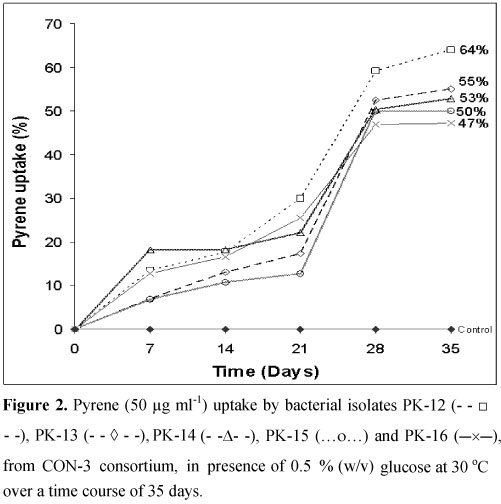Pyrene, a high molecular weight polycyclic aromatic hydrocarbon (PAH), is a priority pollutant present in soil contaminated with crude oil, coal-tar and complex PAHs. Bacterial consortium CON-3 developed from crude oil contaminated soil of Patiala, Punjab (India) cometabolized 50 µg ml-1 pyrene in the presence of glucose (0.5 %; w/v) at 30 °C, as determined by reverse-phase high performance liquid chromatography (HPLC). Bacillus sp. PK-12, Bacillus sp. PK-13 and Bacillus sp. PK-14 from CON-3, identified by 16S rRNA gene sequence analysis, were able to cometabolize 64 %, 55 % and 53 % of pyrene in 35 days, respectively. With the increase in glucose concentration to 1.0 % (w/v) in growth medium isolates PK-12, PK-13 and PK-14 showed 19 - 46 % uptake of 50 µg ml-1 pyrene in 4 days, respectively. Uptake of pyrene was correlated with growth and biosurfactant activity, which is suggestive of the potential role of members of Bacillus genera in pyrene mobilization and its uptake.
Pyrene; Bacillus; crude oil contaminated soil; high performance liquid chromatography (HPLC)







